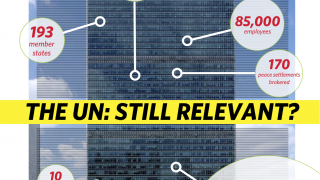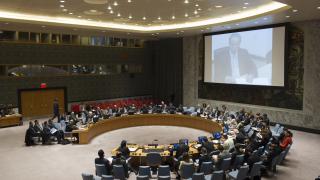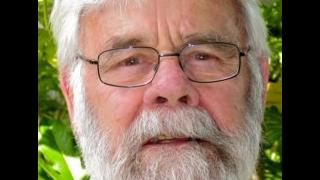
The Cyrus Cylinder, recently returned to the British Museum after a seven-month loan to the National Museum of Iran, has been referred to as the first human rights charter. A copy was donated to the United Nations building in New York. But the first truly international human rights treaty was the UN Convention on the Prevention and Punishment of the Crime of Genocide. It was approved (by 55 votes to none, with no abstentions) by the UN General Assembly meeting in Paris on 9 December 1948, a day before the Assembly adopted the Universal Declaration of Human Rights, and entered into force in 1951.
While the Declaration is an inspirational affirmation of human rights principles, the Convention is a treaty that confers legal obligation on its parties. Article 1 of the Convention states: “The Contracting Parties confirm that genocide, whether committed in time of peace or war, is a crime under international law which they undertake to prevent and to punish”. As ever, though, there is a gap between legislation and implementation, and in this century as in the last, the international community has failed to prevent tragedies in countries such as Sudan, Bosnia and Rwanda.
The word “’genocide’ was coined by the Polish lawyer Raphael Lemkin in 1944. It remains to this day the most serious in the litany of egregious abuses, including crimes against humanity, war crimes and ethnic cleansing, and carries with it a compulsion to act. It is perhaps telling that the UN Security Council avoided the use of the word ‘genocide’ in its consideration of the events unfolding in Rwanda in April 1994.
Linda Melvern dedicated the first edition of her book - A People Betrayed – the role of the West in Rwanda’s genocide - to Lemkin's memory, and the publication is the source for much of this article. Lemkin fled the German occupation of Poland and lost his family in the Holocaust. In 1944, he published a seminal book containing his definition of genocide, which was ultimately incorporated into the Genocide Convention as: “acts committed with intent to destroy in whole or in part, a national, ethnic, racial or religious group”. Indeed, Lemkin drafted much of the Convention, and lobbied hard for its adoption.
Lemkin himself was an expert on the Armenian genocide of 1915-1918 during the final days of the Ottoman Empire, and was dismayed at the almost universal indifference to it, which he believed encouraged Hitler. Before the German attack on Poland in August 1939, Hitler ordered his troops “to send to death mercilessly and without compassion men, women and children of Polish derivation and language” asking “who, after all, speaks today of the Armenians?” This quotation is given in full at the Holocaust museum in Washington DC, but at the Imperial War Museum in London the last sentence has been omitted – thus diminishing the impact of the passage and the opportunity for ‘lessons learned’.
To this day, the Armenian genocide remains an incredibly sensitive issue for Turke and several countries still do not recognise it as genocide, including the UK and the US, although a US Congressional Panel did so in May 2010. For France and other countries, the reluctance of Turkey to face up to its past is a stumbling block to its admission to the European Union. After all, refusal to acknowledge the past undermines efforts to prevent such heinous crimes from occurring in the future.
Acknowledgement of crimes such as genocide can come in many forms. After the second world war, the Nuremberg trials held Nazi perpetrators to account. The International Criminal Tribunals for Rwanda and the Former Yugoslavia, and trials at the International Criminal Court, are the modern equivalents. But other countries have followed different paths. In post-Apartheid South Africa, an amnesty was granted to perpetrators in return for giving evidence to a Truth and Reconciliation Commission, the aim being to establish a clear narrative of past events as a basis for individual and national healing. As Professor Nzongola-Ntalaja has argued “the people of the Congo are concerned to concentrate on the future rather than the past, but they need to understand that past in order to plan for the future”.
Peter Greaves is a member of UNA Blackheath & Greenwich branch




















